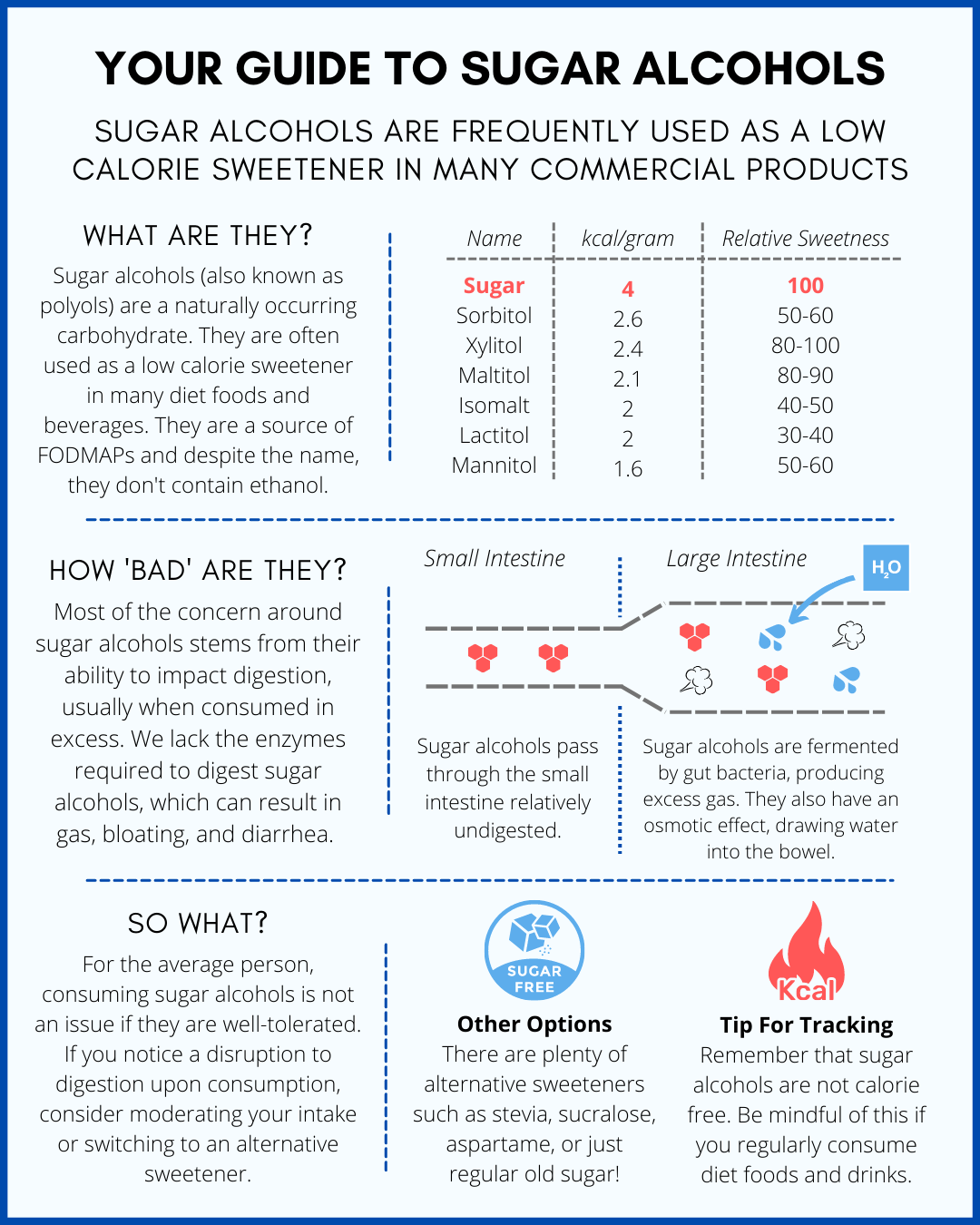“Free” sweetness can still have a price
Despite their name, sugar alcohols are neither sugar nor alcohol. Rather, they are a carbohydrate structure that occurs naturally in some fruits and vegetables such as sweet potatoes, berries, olives, and mushrooms. On the other hand, sugar alcohols can also be synthetically formulated and are regularly added to food and beverage products in the pursuit to artificially enhance their sweetness.
Compared to “artificial sweeteners”, such as saccharin, aspartame and sucralose (which are calorie-free), sugar alcohols DO contain calories. As illustrated above, compared to regular sugar (4cal/gram) sugar alcohols can contain ~1-3cal/gram. While this amount of energy may seem negligible, there are circumstances where it can quickly add up, potentially having consequences on both digestion and total calorie intake.
Let’s take Queen Sugar Free Maple Flavoured Syrup for example. This product lists sorbitol as one of its main ingredients, however because it’s not technically sugar, the nutrition label doesn’t require it to be listed under “carbohydrates”, hence why it says “<1g/serve”. However, nutrition labels ARE required to disclaim a products energy content, and since we know sorbitol contains calories, this is why a 35ml serving of syrup contains 18 calories, which is equivalent to 4.5g of carbs.
This is a classic example of why calories and macros don’t always add up when tracking certain products on an app such as MFP. Therefore, to navigate this, it’s important to use entries which count sugar alcohol under the carbohydrate content, or to be aware in general of your total energy intake rather than just your “net carb” intake.
Apart from providing mysterious calories, sugar alcohols are also notorious for unpleasantly impacting digestion, particularly if they are consumed in excess. Bear this in mind if you are regularly consuming “diet” products such as protein bars, ice cream, chewing gum, condiments and the like.
The literature suggests that consuming sugar alcohols is safe, however from a digestive standpoint they can sometimes cause more grief than good! Find your level of tolerance and you’ll be sweet!
